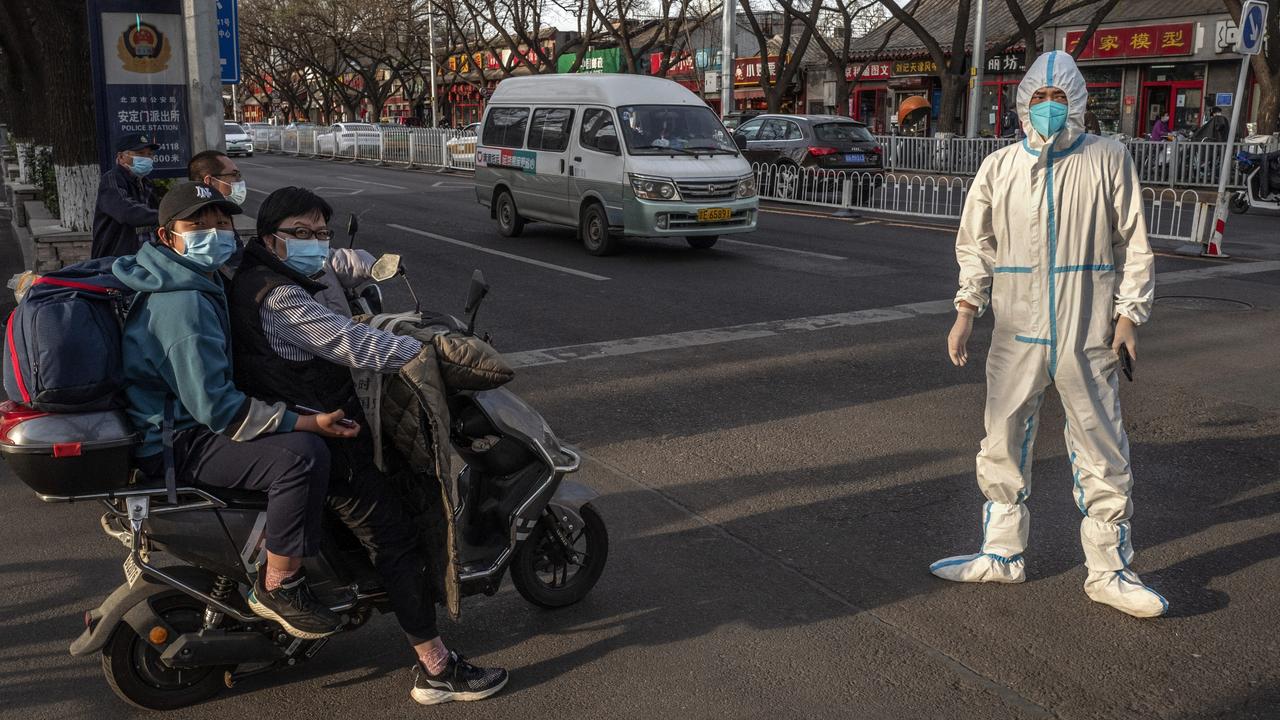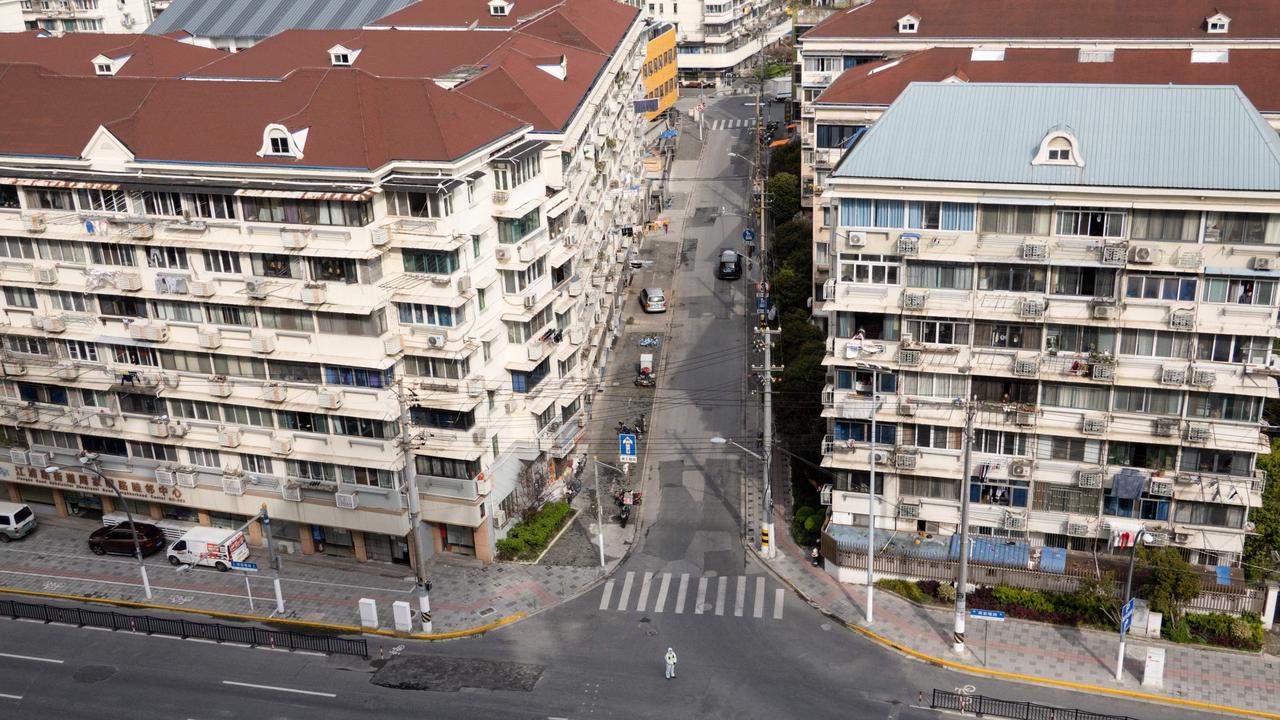Disturbing reason China may be clinging to Covid zero policy
Apartment residents are screaming from their windows and unrest is growing among citizens but there’s a disturbing reason why China doesn’t want to open up.

China’s success at controlling the spread of coronavirus has been a source of pride for its government but there may be a disturbing reason why it won’t let go of its zero Covid policy.
China has boasted less than 5000 deaths from Covid-19 since the start of the pandemic, something authorities once liked to say showed the country’s superior management of the disease compared to countries like the United States where more than 900,000 have died.
But more infectious variants like Omicron and Delta, have begun to reveal the cracks in China’s strategy and raised questions about why the country is still clinging to its “dynamic zero” Covid policy.
In the city of Shanghai, more than 25 million residents have been locked down, with the harsh conditions making headlines around the world, including videos of a pet corgi killed because its owner had tested positive, and residents of an apartment building screaming for help.
There has been fury about food shortages and outrage about a now-softened policy that saw Covid-positive children separated from their parents.
Even one of China’s top doctors Dr Zhang Wenhong — dubbed China’s Dr Fauci — once said the country should learn to coexist with Covid before later backing down.
He now believes “realising dynamic zero … will help to resume normal medical order as early as possible”.
However, with most countries now abandoning Covid zero in the face of more infectious strains sweeping the world, some are questioning whether China’s stubbornness makes sense anymore.
Yanzhong Huang, senior fellow for Global Health at the Council on Foreign Relations, has noted that: “in terms of … balancing the need to protect health against the need to protect socio-economic stability, I’m not sure that this is the right approach”.
In an article for the New York Times, Mr Huang noted the infectiousness of Delta means reaching herd immunity through vaccination is not possible in China with the current vaccine program, even if 80 per cent of the population is jabbed.

The vaccines in use in China are thought to offer less protection against infection when tested against the original strain of the virus than mRNA vaccines like Pfizer, which are being used widely in the rest of the world. The more infectious strains that have emerged recently are also able to better evade the protection offered.
Most other countries have now acknowledged that while vaccination can prevent the most severe impacts of the disease, there will likely still be some cases.
“Sticking with the current approach would transform China into a hermit nation that could be dangerous,” Mr Huang wrote in September last year, noting that even countries like Singapore and Australia had shifted to policies aimed at ‘living with’ and not eradicating Covid.
“China would be wise to take heed and pivot,” he advised.

“A strategy focused on preventing severe cases and deaths and administering vaccines with high efficacy would be in China’s best interest, both in the short and long term.”
China has however, stuck to its policy, despite official figures showing the vast majority of the more than 100,000 cases in Shanghai in the past month showed no symptoms of Covid.
One reason put forward for this is concern about whether China’s “patchy hospital network” could cope with the sudden spike in infections.
According to The Washington Post, researchers at Peking University estimated China would face a “colossal outbreak,” with more than 630,000 infections a day if it were to reopen, and that was before Omicron became predominant.
Another issue seems to be centred around the “bad optics” it would create if the government were to switch tactics ahead of the national congress of the ruling Communist Party scheduled to be held later this year, where President Xi Jinping is expected to try and extend his power.

“Zero-Covid is not just a Party policy, but … a Xi policy”, Steve Tsang, director of the SOAS China Institute in London, told AFP.
“As such it cannot be wrong and cannot be abandoned — at least not until Xi sees its continuation will harm himself or his hold on power.”
That moment could come sooner rather than later, with criticism of China’s unrelenting approach to crushing outbreaks mounting, more so as the rest of the world learns to live with the virus.
On Tuesday, the United States said it had ordered all non-essential employees at its Shanghai consulate to leave, voicing concerns for the safety of Americans in China as the government enforces hard lockdowns.
Beijing hit back against the decision, accusing Washington of using the epidemic to “engage in political manipulation”.
Meanwhile, authorities in Shanghai, which reported more than 23,000 new infections on Tuesday, vowed the city “would not relax in the slightest”, preparing tens of thousands of new beds to receive every person who tests positive — whether or not they show symptoms.
However, some residents who live in neighbourhoods deemed a low virus risk have been allowed outside their homes this week, although unclear rules have left most in limbo.

The European Union Chamber of Commerce has warned that China’s coronavirus strategy is “eroding foreign investors’ confidence”.
In a letter seen by AFP, it urged Beijing to shift its approach by vaccinating the elderly — among whom inoculation rates are low — and allowing people with mild symptoms to quarantine at home.
Analysts at Nomura warned that China has been “facing a rising risk of recession”, calculating that 45 cities are currently under full or partial lockdown — accounting for 40 per cent of China’s GDP and more than a quarter of its population.





